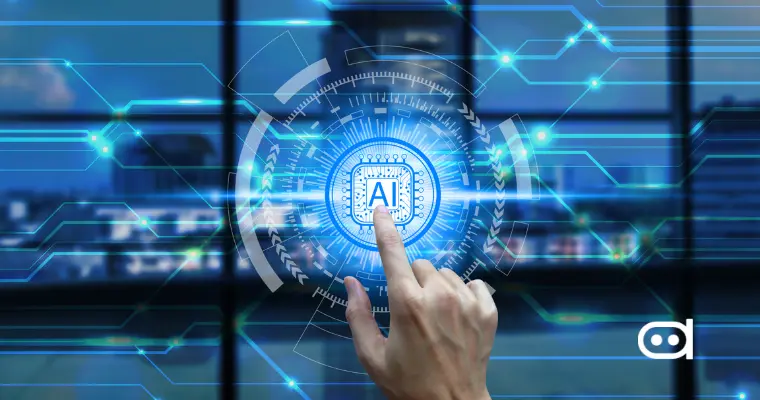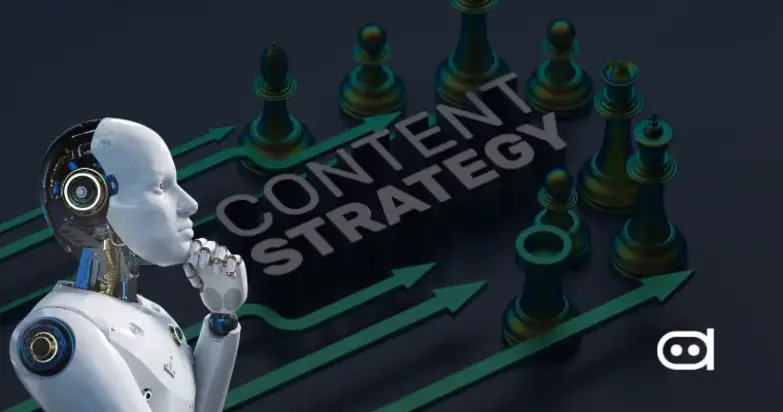
Artificial Intelligence is a reality now; it is reshaping business operations worldwide in the fastest possible manner. From optimizing supply chains to reinventing customer experiences, AI’s motto is ever-expanding and ever-evolving. Companies that fail to align with AI’s modern developments could lose their competitive edge since innovative transformations are taking place rapidly across different industries worldwide.
Organizations thus benefit from AI in automating operations, direct execution of decisions in real-time, and intelligent data analytics. AI business strategies have radically shifted to scale up productive operations, lessen inefficiencies, and create future-class products.
This article explores the AI trends in business shaping the future as well as significant strategies embracing AI. From generative AI to cyber protection and workforce transformation, read about the means through which businesses can link AI toward producing innovation sustainably.
Key Takeaways
- AI revolutionizes business innovation, customer engagement, and automation.
- Predictive and AI-enabled intelligent security improves decision-making and safety.
- AI is going to lead a change toward workforce transformation and create an even closer collaboration between human parties and intelligent systems.
- Companies should address persisting issues regarding AI implementation, such as ethics and bias, as well as complexity, to fully utilize the capability of this technology.
Key AI Trends Transforming Businesses
AI-developed advancements cover all aspects of operations and transform businesses. Here are the top AI trends that add to the change.
Generative AI for Business Innovation
Generative AI is the call of the hour, defining industries with cross-industry creativity and efficiency. For instance, businesses use AI-based idea-generating tools for marketing copy automation, product design, and software development. OpenAI’s GPT models, Adobe Firefly, and Runway-ML are a few examples of tools that help surpass content creation to the degree where they decrease the cost of production and increase the innovativeness associated with such production. Beyond content creation, generative AI is reinventing how products are defined and rapidly prototypes them through AI-powered simulations.
AI in Customer Experience & Personalization
AI improves customer experiences and also redefines how businesses connect or interact with their customers at this stage, especially hyper-personalization, because of data insights learned through AI. AI features personalize marketing by recommending what the customer is likely to buy based on his user behavior, preferences, and purchase history.
Customer support via chatbots and virtual assistants, e.g., Chat GPT and Google Bard, revolutionizes requests with immediate response times. Businessmen can analyze their customers’ sentiments using AI-powered sentiment analysis tools and improve their service delivery and brand loyalty.
AI-Powered Automation & Efficiency
AI helps businesses control costs while guaranteeing smooth operations, efficiency, and productivity across sectors. For example, AI Tools for HR Automation can automate many repetitive tasks. Similarly, they can help the finance, human resources departments, and supply chain processes while eliminating the possibility of slight errors by humans operating on productive work inputs.
AI-enabled predictive maintenance will eliminate unreasonable downtimes in manufacturing by identifying potential equipment failures before they happen. Logistic route optimization through AI offers rapid and cheap delivery schemes that entice companies like Amazon and FedEx. AI-Driven
Decision-Making & Predictive Analytics
AI-powered analytics increase the competitive advantage by providing greater accuracy to decision-making. The areas employing AI for predictive analytics include finance, healthcare, and marketing, where it is utilized for sifting through enormous data sets and finding patterns and trends that human analysts would take time and effort to pinpoint.
AI models in finance predict market trends, fraud risks, and investment opportunities with high levels of accuracy. AI is used more optimally by marketing departments in ad placements, consumer demand forecasting, and pricing strategy enhancement for better campaign return.
AI in Cybersecurity & Fraud Prevention
As cyber threats become more sophisticated, AI becomes more important for cybersecurity and fraud detection. AI Tools for cybersecurity monitor and analyze network traffic, investigating anomalies and neutralizing risks before any breach occurs.
In banks and financial institutions, AI-powered algorithms help track suspicious transactions and prevent different forms of financial crimes. AI systems of authentication through biometrics and behavioral analytics further ensure heightened security for companies concerned with handling highly sensitive customer information.
AI for Workforce Transformation
AI empowers work through the automation of repetitive activities, while human capabilities are augmented for judgment on complex matters. AI tools facilitate remote work easily for seamless collaboration and workflow management.
With AI gaining traction among companies, the focus is on building a workforce trained to partner with it. Corporations like Microsoft and Coursera are setting up programs to train professionals in AI building, ethics, and data analytics, all of which will aid the transition into an AI-centric workforce.
Challenges and Considerations for AI Adoption
While AI presents immense opportunities, businesses must address several challenges to ensure responsible and effective implementation.
- Data Privacy & Security: Given the sensitive data that AI systems handle, there are chances of data breaches. Organizations must enforce stringent cyber security practices, encryption, and compliance measures to protect user information at any cost.
- Bias and Ethical Concerns: AI models may have become biased by training data, thus bringing extremely unfair outcomes in recruitment and tests of other situations.
- Integration Complexity: Businesses must invest a lot of money and technical skills to integrate AI business systems. Organizations willing to implement an AI plan would have to assess the compatibility of their system, the necessary infrastructure changes, and the preparedness of their workforce for such an undertaking.
- Regulatory and Compliance Challenges: The rapid evolution of laws regulating AI requires different policies for AI governance across various territories. Companies must ensure awareness regarding laws concerning data privacy, such as GDPR and the California Consumer Privacy Act, as well as other upcoming AI-regulation-oriented laws.
- Impact on the Workforce and Skills Gap: AI automation changes jobs, making it mandatory for companies to undergo workforce training or retraining. Developing and adopting human-AI collaboration strategies and AI literacy programs will facilitate a smoother transition.
Future of AI Trends in Business
AI business trends come and go, but they all lead to intricate developments. This will change industries and business models forever. The future of AI trends in business include:
- AI for Sustainability: AI supports companies in meeting the target of a reduced carbon footprint through enhanced energy efficiency, logistics, and waste management. AI modeling is also adopted to predict and minimize environmental dangers.
- Quantum AI: The combination of quantum and artificial intelligence may well unleash an entirely new and, as yet, unimaginable intensity of computational power, speeding discoveries in medicines, materials science, and financial modeling. Quantum AI would allow very fast analysis of complex data sets, broadening the horizon for businesses that need high precision in computing.
- AI in Robotics: The landscape of manufacturing logistics and healthcare is being transformed by AI-powered autonomous robots in the remodelling of precision and efficiency. Intelligent robots with developed machine learning can adapt to rapidly changing environments for productive and safer operations.
- Edge AI for Real: Time Processing: More companies are investing in AI solutions that can run directly on edge devices, so the dependence on cloud computing becomes less. It can soon lead to real-time decision-making capabilities in autonomous vehicles, smart factories using IoT technology, or other applications.
With the continued evolution of AI, industries willing to adapt will enjoy competitive superiority due to the technology at their disposal. Therefore, adaptation to these advancing technologies will be very critical for continued success in the future AI world of business.
Closing Thoughts
AI is now a change agent. Artificial intelligence trends in business will build up faster, and companies will find themselves far more effective, innovative, and able to sustain themselves in the long run. Companies willing to put resources into AI research and training and practice it in good faith will emerge as pioneers in this movement. AI will become increasingly useful in sustainability, healthcare, and finance, thus opening avenues for entrepreneurs willing to innovate.
Knowing AI’s current DNA, organizations will be able to seize opportunities, rewire customer experiences, and work towards accomplishing long-term success. AI is not for tomorrow; it is for today. Those who strategically recognize and use any AI trend that works for them will organize how business is done tomorrow.









